Phillipston property owner proposes retail marijuana location
| Published: 11-03-2023 5:00 PM |
PHILLIPSTON – Monil Patel, owner of Phillipston Liquor & Variety, and his attorney, Valerio Romano, appeared before the Selectboard Wednesday night to review plans for a retail marijuana operation.
Patel proposes transforming a building on his property—located at at 325 State Road/Route 2A—which once served as an ice cream store, into a retail cannabis business. Romano estimated the project, including the renovation of the building into a retail location, will cost approximately $200,000.
“Our plan is to open a marijuana retailer there; no cultivation, no product manufacturing, and no on-site consumption – just a retail commercial space,” said Romano. “So, we will purchase products from wholesalers around the Commonwealth, companies that cultivate and product-manufacture themselves.”
Romano noted that most people in Phillipston are familiar with Patel, adding, “We’re coming before you with property that we own. We’re not in a position where it’s going to be a major financial outlay in the future in order to bring this property forward; we have it, and we have the capital to do this.”
Romano told the board he had helped draft the ballot initiative that brought an end to the cannabis prohibition in Massachusetts.
“Why Phillipston?” he posited. “Phillipston is a community that doesn’t have a marijuana retailer yet. Another reason is we own the property. And another is the property is already properly zoned. So, we don’t have to go to the zoning board for any sort of variance or zoning relief.”
After giving the board a rundown on security and the operation of the facility, Romano pitched the proposal by arguing, “This is going to be one of the main tax revenue and financial generators (for Phillipston) in less than 1,000 square feet on two floors.”
He emphasized that the town will collect 3% of the operation’s revenues “off the top,” whether it’s the sales tax or the Host Community Agreement. He was quick to add, however, that changes in what is allowed in such agreements will soon be announced by the state’s Cannabis Control Commission (CCC). Romano said the business will cover any costs incurred by Phillipston resulting directly from the operation.
Article continues after...
Yesterday's Most Read Articles
 Work on Pinedale Avenue Bridge connecting Athol and Orange to resume
Work on Pinedale Avenue Bridge connecting Athol and Orange to resume
 PHOTOS: Enchanted Orchard Renaissance Faire at Red Apple Farm
PHOTOS: Enchanted Orchard Renaissance Faire at Red Apple Farm
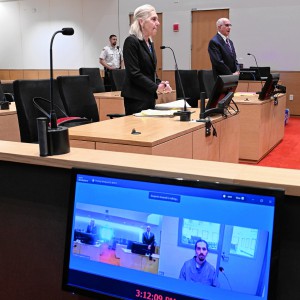 Lawyer argues Joshua Hart’s 2018 conviction for Orange murder had inconsistent verdicts
Lawyer argues Joshua Hart’s 2018 conviction for Orange murder had inconsistent verdicts
 UMass basketball: Minutemen nab another transfer in Arizona State forward Akil Watson
UMass basketball: Minutemen nab another transfer in Arizona State forward Akil Watson
 ‘Arrive Alive’ shows Athol High School students the dangers of impaired driving
‘Arrive Alive’ shows Athol High School students the dangers of impaired driving
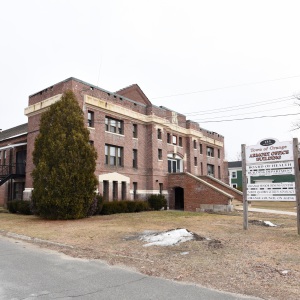 Orange Selectboard declares armory as surplus property
Orange Selectboard declares armory as surplus property
Host community agreements allowed communities to charge marijuana retailers, manufacturers and cultivators an additional 3% of revenues in “community impact fees.” Changes in that provision were enacted by the Legislature, limiting the authority of cities and town to demand percentage-based annual community impact fees.
Other benefits to the town, the attorney added, are that the building’s improved appearance, the hiring of six to eight people, and a commitment in the host community agreement that every effort will be made to hire locally.
Romano asked that the board to forego requiring Patel to submit detailed information regarding funding and construction plans before an HCA can be issued. The board, according to the town’s regulations, does have the discretion to deviate from those requirements.
“I’ve to talked to Monil about the funding it takes, and he’s committed to it,” Romano said. “Plus, we have site plan review with the Planning Board, and it’s a major site plan review. That has all the fully-engineered architect’s documents.”
Roman said he would provide the board with proof that Patel has the deed to the property, the capital needed to establish a retail location, and that he and Patel have clean criminal records. He added that an agreement is needed before application can be made to the Cannabis Control Commission.
Selectboard Chair Bernie Malouin asked Romano to submit a document detailing all of the provisions from which he would like Patel to be exempt. Malouin and board member Dan Sanden then agreed to revisit the issue of a Host Community Agreement at the board’s next meeting on Nov. 15. Board member Gerhard Fandreyer was absent from Wednesday’s meeting.
In response to a question from Town Clerk Karin Foley, Romano said that, depending on how promptly the CCC acts, the operation could realistically open within a year.
Greg Vine can be reached at gvineadn@gmail.com.


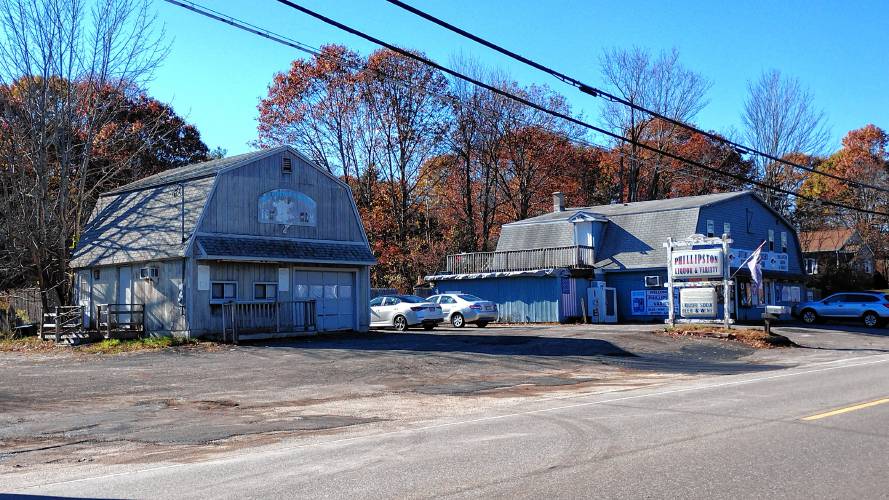
 Sportsman’s Corner: The quest for the Super Slam
Sportsman’s Corner: The quest for the Super Slam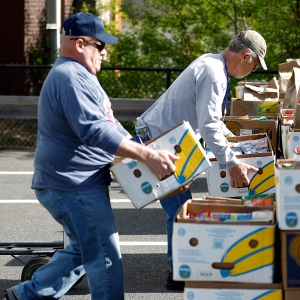 Annual ‘Food-A-Thon’ returns
Annual ‘Food-A-Thon’ returns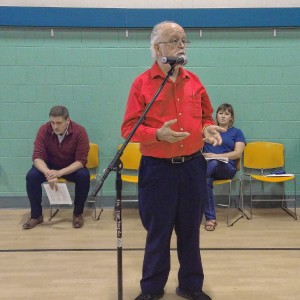 Erving Town Meeting voters back Care Drive housing project
Erving Town Meeting voters back Care Drive housing project North Quabbin Notes, May 9
North Quabbin Notes, May 9